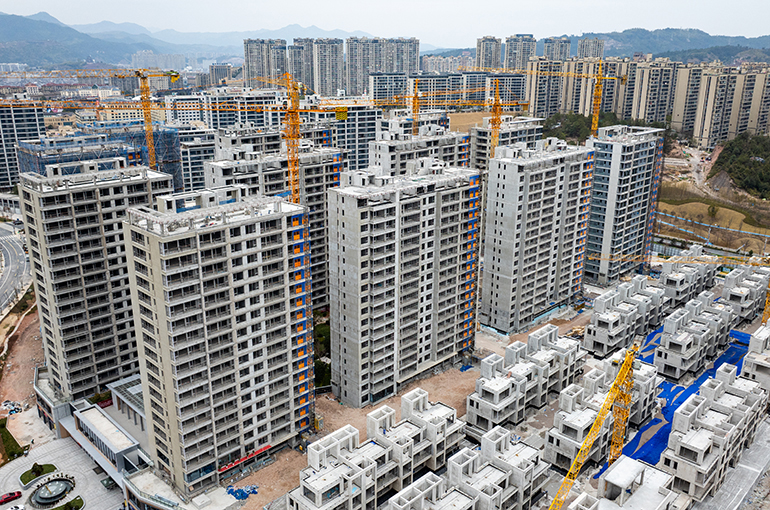 China’s Top Builders Spent 28% More Buying Land in First Eight Months
China’s Top Builders Spent 28% More Buying Land in First Eight Months(Yicai) Sept. 3 -- China's 100 leading builders shelled out 28 percent more purchasing land parcels for development in the first eight months of this year compared with a year ago, despite the real estate market still not having bottomed out.
The developers spent more than CNY605.6 billion (USD83.4 billion) buying land plots in the eight months ended Aug. 31, according to figures released by the China Index Academy, a real estate research center. Eight of the top 10 buyers were government-owned businesses.
Those that disclosed their buying strategies during first-half earnings briefings pointed to investments in first- and second-tier cities where the market remains relatively stable. Even those that previously expanded into third- and fourth-tier cities are redirecting their attention to prime locations in key cities.
High-quality projects in prime locations have shown promising sales, lifting builders’ earnings and helping repair their balance sheets.
Greentown China Holdings, one of the most active land buyers, reported strong sales at newly acquired projects in Suzhou, Shanghai, and Nanjing, with most selling out. China Jinmao, another major buyer, said the projects it has embarked on since last year exceeded investment expectations and will likely boost its gross profit margin.
During earnings briefings, leading developers generally expressed their continued willingness to invest in buying land parcels with a focus on high-quality plots.
China Overseas Land & Investment expects investment growth in the second half of this year. While the overall real estate market has contracted, demand for home improvement continues to grow, presenting ample development opportunities in an increasingly concentrated market, it pointed out.
Regarding market trends, urban market divergence will intensify in the second half of this year, according to executives at the builders. Core areas in first-tier and strong second-tier cities will likely stabilize first, while third- and fourth-tier and weaker second-tier cities will need more time to clear inventory and rekindle demand, they added.
Editor: Martin Kadiev